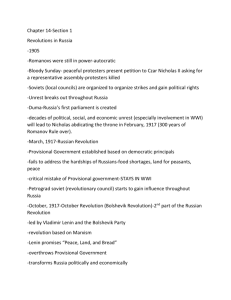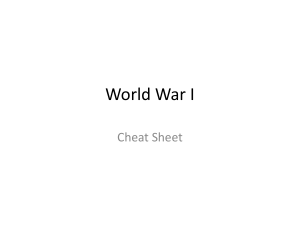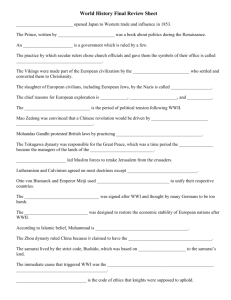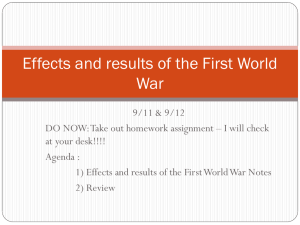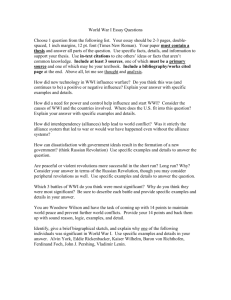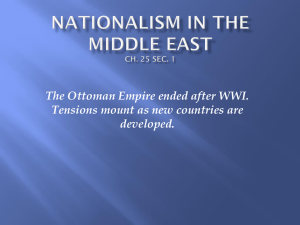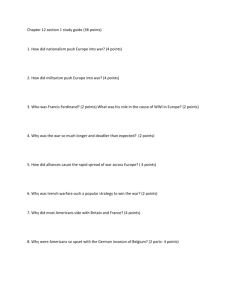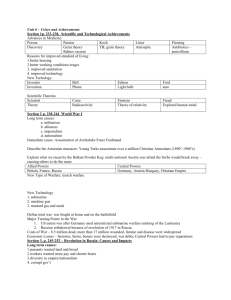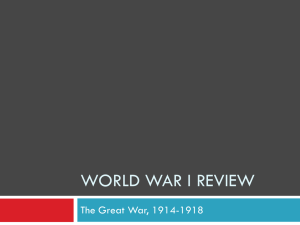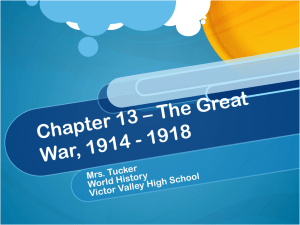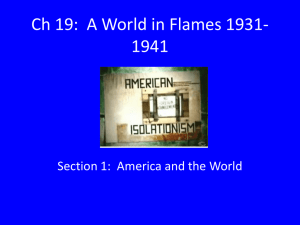WWI and Russian Revolution vocabulary
advertisement
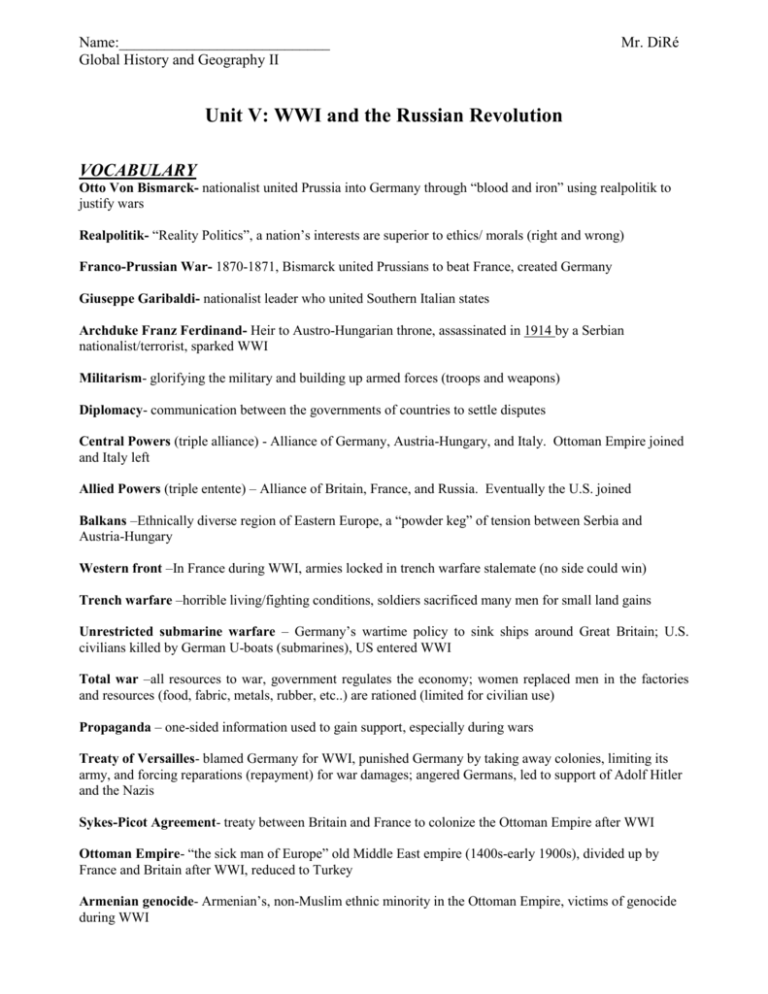
Name:____________________________ Global History and Geography II Mr. DiRé Unit V: WWI and the Russian Revolution VOCABULARY Otto Von Bismarck- nationalist united Prussia into Germany through “blood and iron” using realpolitik to justify wars Realpolitik- “Reality Politics”, a nation’s interests are superior to ethics/ morals (right and wrong) Franco-Prussian War- 1870-1871, Bismarck united Prussians to beat France, created Germany Giuseppe Garibaldi- nationalist leader who united Southern Italian states Archduke Franz Ferdinand- Heir to Austro-Hungarian throne, assassinated in 1914 by a Serbian nationalist/terrorist, sparked WWI Militarism- glorifying the military and building up armed forces (troops and weapons) Diplomacy- communication between the governments of countries to settle disputes Central Powers (triple alliance) - Alliance of Germany, Austria-Hungary, and Italy. Ottoman Empire joined and Italy left Allied Powers (triple entente) – Alliance of Britain, France, and Russia. Eventually the U.S. joined Balkans –Ethnically diverse region of Eastern Europe, a “powder keg” of tension between Serbia and Austria-Hungary Western front –In France during WWI, armies locked in trench warfare stalemate (no side could win) Trench warfare –horrible living/fighting conditions, soldiers sacrificed many men for small land gains Unrestricted submarine warfare – Germany’s wartime policy to sink ships around Great Britain; U.S. civilians killed by German U-boats (submarines), US entered WWI Total war –all resources to war, government regulates the economy; women replaced men in the factories and resources (food, fabric, metals, rubber, etc..) are rationed (limited for civilian use) Propaganda – one-sided information used to gain support, especially during wars Treaty of Versailles- blamed Germany for WWI, punished Germany by taking away colonies, limiting its army, and forcing reparations (repayment) for war damages; angered Germans, led to support of Adolf Hitler and the Nazis Sykes-Picot Agreement- treaty between Britain and France to colonize the Ottoman Empire after WWI Ottoman Empire- “the sick man of Europe” old Middle East empire (1400s-early 1900s), divided up by France and Britain after WWI, reduced to Turkey Armenian genocide- Armenian’s, non-Muslim ethnic minority in the Ottoman Empire, victims of genocide during WWI Genocide- mass killing of people based on ethnicity, race, or religion Bloody Sunday- Russians asked for voting rights and free speech, killed by troops of Nicholas II Czar Nicholas II- Ineffective last Czar of Russia, overthrown and executed with family after Bolshevik Communist Revolution Proletariat –poor farmers and factory workers who were supposed to gain political power after communist revolution but didn’t Bolshevik Revolution –1917 communist revolution in Russia against the government that had replaced Czar Nicholas II. Vladimir Ilyich Lenin – Bolshevik leader, got support of the Russian proletariat by promising “peace, land, and bread”, established communist dictatorship in Russia (1920-1922), changed Russia into the USSR (United Soviet Socialist Republic)
